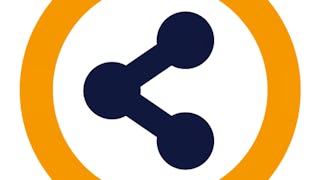This course introduces students to state of the art research in social epistemology. Social epistemology investigates the epistemic effects of social interactions: e.g., how we gain knowledge from social sources (others’ testimony, the media), how we should respond to disagreement, how groups (scientific teams, organisations) can know. It is among the most thriving areas in contemporary philosophy. Results in social epistemology have wide, direct impact on: (1) scientific practice (e.g. concerning academic publishing, guidelines for scientific authorship and collaboration, knowledge policy and debates over the role of the Internet in knowledge transmission and creation); (2) society at large (e.g. concerning voting, legal standards for criminal conviction, cross-cultural communication barriers, licensing mass communication policies, increasing social cohesion).



Empfohlene Erfahrung
Kompetenzen, die Sie erwerben
- Kategorie: Journalism
- Kategorie: Probability & Statistics
- Kategorie: Investigation
- Kategorie: Media and Communications
- Kategorie: Cultural Responsiveness
- Kategorie: Social Sciences
- Kategorie: Peer Review
- Kategorie: Research
Wichtige Details

Zu Ihrem LinkedIn-Profil hinzufügen
Mai 2025
19 Aufgaben
Erfahren Sie, wie Mitarbeiter führender Unternehmen gefragte Kompetenzen erwerben.

In diesem Kurs gibt es 4 Module
Overview: Introduce the staff and contextualize the course themes around social epistemology. Testimony: Discuss the reductionism debate and the nature of second-hand knowledge. Trust: Explore the relationship between testimonial knowledge and trust. Assertion: Analyze the connection between assertion and knowledge.
Das ist alles enthalten
4 Videos5 Lektüren4 Aufgaben
Group Belief: Examine the relationship between individual and group beliefs. Group Justification: Discuss the nature of justification for group beliefs. Group Action: Explore the conditions under which groups act collectively. Group Evidence: Analyze the concept of group evidence and its implications for rational belief.
Das ist alles enthalten
4 Videos4 Lektüren5 Aufgaben
Expertise and Peerhood: Understand the varieties of expertise and the concept of peerhood. Peer Disagreement: Evaluate rational responses to peer disagreement. Group Disagreement: Discuss the unique features of group disagreement. Knowledge Resistance: Explore the factors contributing to resistance to knowledge.
Das ist alles enthalten
5 Videos4 Lektüren5 Aufgaben1 Diskussionsthema
(Dis)information: Discuss the nature of disinformation and its epistemic implications. Norms of Reporting: Evaluate the norms governing media reporting and their impact on information dissemination. Attention and Inquiry: Analyze the relationship between attention, inquiry, and media influence. Nudging and Paternalism: Discuss the role of nudging and paternalism in shaping epistemic practices.
Das ist alles enthalten
5 Videos4 Lektüren5 Aufgaben
Erwerben Sie ein Karrierezertifikat.
Fügen Sie dieses Zeugnis Ihrem LinkedIn-Profil, Lebenslauf oder CV hinzu. Teilen Sie sie in Social Media und in Ihrer Leistungsbeurteilung.
Dozent

Mehr von Philosophy entdecken

Erasmus University Rotterdam

Universitat Autònoma de Barcelona

The State University of New York

Erasmus University Rotterdam
Warum entscheiden sich Menschen für Coursera für ihre Karriere?





Neue Karrieremöglichkeiten mit Coursera Plus
Unbegrenzter Zugang zu 10,000+ Weltklasse-Kursen, praktischen Projekten und berufsqualifizierenden Zertifikatsprogrammen - alles in Ihrem Abonnement enthalten
Bringen Sie Ihre Karriere mit einem Online-Abschluss voran.
Erwerben Sie einen Abschluss von erstklassigen Universitäten – 100 % online
Schließen Sie sich mehr als 3.400 Unternehmen in aller Welt an, die sich für Coursera for Business entschieden haben.
Schulen Sie Ihre Mitarbeiter*innen, um sich in der digitalen Wirtschaft zu behaupten.
Häufig gestellte Fragen
Access to lectures and assignments depends on your type of enrollment. If you take a course in audit mode, you will be able to see most course materials for free. To access graded assignments and to earn a Certificate, you will need to purchase the Certificate experience, during or after your audit. If you don't see the audit option:
The course may not offer an audit option. You can try a Free Trial instead, or apply for Financial Aid.
The course may offer 'Full Course, No Certificate' instead. This option lets you see all course materials, submit required assessments, and get a final grade. This also means that you will not be able to purchase a Certificate experience.
When you purchase a Certificate you get access to all course materials, including graded assignments. Upon completing the course, your electronic Certificate will be added to your Accomplishments page - from there, you can print your Certificate or add it to your LinkedIn profile. If you only want to read and view the course content, you can audit the course for free.
You will be eligible for a full refund until two weeks after your payment date, or (for courses that have just launched) until two weeks after the first session of the course begins, whichever is later. You cannot receive a refund once you’ve earned a Course Certificate, even if you complete the course within the two-week refund period. See our full refund policy.
Weitere Fragen
Finanzielle Unterstützung verfügbar,
 enthalten
enthalten
